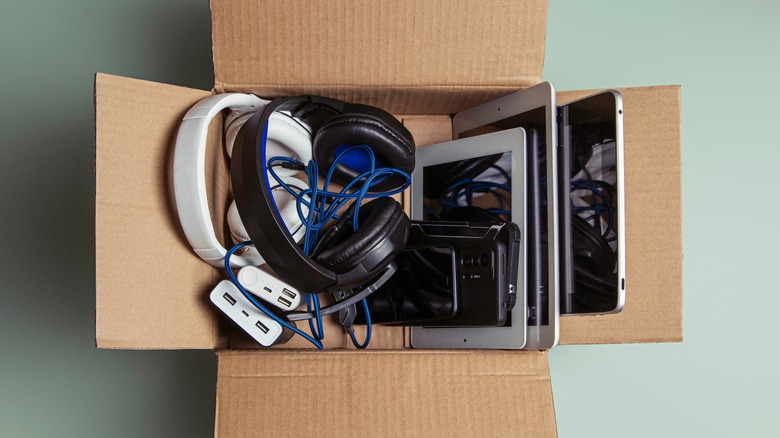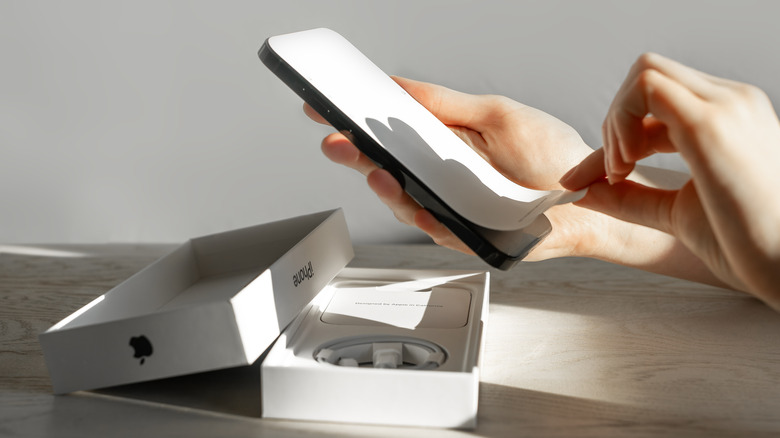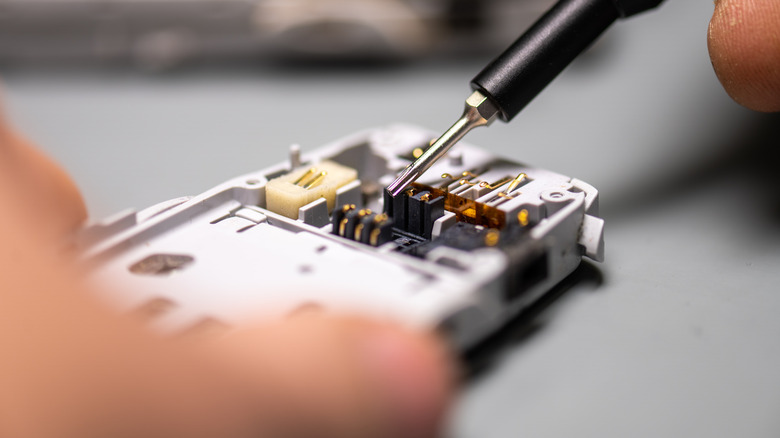Open Box, Refurbished, And Used Electronics: Differences And How To Find The Best Deals
When searching for the best prices on electronics, you may often find yourself drawn to deals on devices that aren't brand new or factory sealed. These can take on multiple forms with many different, sometimes overlapping names, like open box, warehouse deals, scratch and dent, B-stock, renewed, and reconditioned. However, not every manufacturer or vendor uses these terms the same way, which makes it confusing to tell the difference between new, used, and refurbished devices. If you're dealing directly with the manufacturer, that eases some concerns. If you're not, then you'd better hope that whatever reseller you're buying from has a good reputation and clearly communicates exactly what each description of a non-new product really means.
Another complicating factor is whether or not a given vendor carries official manufacturer warranties. Generally speaking, if the vendor you're buying from is one of the manufacturer's authorized dealers or resellers — something you can often find out on the manufacturer's website — it's a lot more likely that the device in question will carry a warranty, even if it's not brand new. If you're not dealing with an authorized reseller, though, your device likely won't come with a warranty, or it may have started counting down the moment the reseller acquired it.
These concerns may make the non-new market seem daunting, but you can save a lot of money getting a refurbished MacBook or a used PS5. Let's take a look at the differences between terms like open box, refurbished, and reconditioned so that you know what you're getting the next time you pick a device.
Open box means a device is nearly new
"Open box" products and other interchangeable terms generally refer to items that were opened but not used. Typically, these are customer returns that the retailer has tested and repacked in-house. A common offshoot of open box is the "scratch and dent" category, which refers to returns with visual blemishes but unimpaired performance. "B-stock" is another common synonym. These terms can carry different quality connotation from one manufacturer or vendor to another, however. While "open box" and its derivatives often come with full manufacturer warranties, that isn't universally true.
If you want your open box or scratch and dent electronics to have a full manufacturer's warranty, then you need to study each retailer's stated policy. Best Buy, for example, says its open box products all come with active warranties, as does specialty electronics catalog vendor Crutchfield, which also extends warranties to scratch and dent items. There's also Amazon Warehouse, where Amazon sells its used and open box products. This can be a great way to save money when shopping on Amazon, though the company tells customers to assume that Warehouse deals won't carry manufacturer warranties.
Refurbished can mean many different things
Unlike "open box" items, where the definition is generally agreed-upon, "refurbished" devices and similar categories are used in many different ways, which can make shopping particularly confusing. If you're looking at the manufacturer's own options, like Apple's refurbished section or the outlet sections on official websites for home audio manufacturers like Denon, there's little room for doubt. They're selling used items that they've inspected and possibly repaired, typically bundling a manufacturer's warranty into the discounted price.
In some cases, the warranty may be shorter than what the item would have as new device, but that's not universal. Apple's refurbished items include the same warranty as new ones, complete with AppleCare eligibility. Refurbished iOS devices even come with new outer shells and batteries across the board.
On the other hand, many vendors throw around "refurbished," "renewed," or "reconditioned" rather liberally. The most desirable refurbished electronics are those where an authorized retailer says the item is "manufacturer refurbished" or "factory refurbished." In the end, it's about drilling down into the warranty details, and making sure that the price reflects what you're getting. A seller-refurbished item with a seller warranty or bundled third-party warranty isn't inherently bad, but it should cost you less than a factory refurb.


